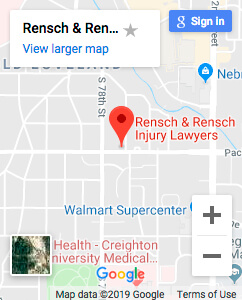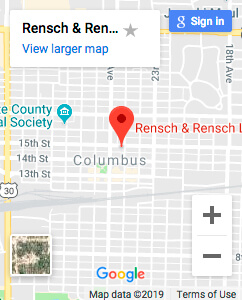What Evidence Should I Gather to Prove Negligence, Liability, and Damages?
If you were injured due to another person’s negligent or reckless actions, you have the right to pursue compensation from the liable party. However, the process of recovering fair compensation in a personal injury claim is often riddled with legal hurdles—especially if your family member died or you suffered a permanent disability.
Although every personal injury case is unique, the success of any claim hinges on the strength of the evidence presented. You will need evidence to prove that the at-fault party owed you a duty of care, breached that duty of care, and the breach of duty caused your injury or loss.
Which types of evidence should you gather? The answer to this question depends on the specific facts of your case. It is important to remember, though, that one overlooked detail could be the difference between recovering fair compensation and walking away with nothing—between restoring financial stability and falling into overwhelming debt due to medical bills and lost income.
An experienced attorney can help you avoid costly mistakes during the claims process and fight for the maximum payout. If your injury occurred in Nebraska, turn to Rensch & Rensch Law for comprehensive legal guidance. Call 1-800-471-4100 to discuss your case with an Omaha accident lawyer in a free initial consultation.
Read on to learn about specific types of evidence that your attorney may use to support your claim:
Proving Negligence
There are several types of cases that fall under the umbrella of personal injury law. Examples include car accident claims, premises liability, product liability, and medical malpractice. The evidence you need to gather depends on the type of case in which you are involved.
For example, if you were injured in a car accident, your attorney may use the police report, witness testimonies, the testimonies of accident reconstruction experts, and photographs of the crash scene to prove negligence. If the collision was caused by a commercial trucker, your attorney might use data from the vehicle’s black box to prove negligence.
If you were injured in a slip and fall on a commercial property, CCTV camera footage may be important evidence. If you were a victim of medical malpractice, your attorney might prove negligence using the testimonies of medical experts along with documentation related to your diagnosis and treatment.
Proving Liability
Who is liable for your injuries? The answer to this question is sometimes straightforward—for example, in a collision caused by a drunk driver. Often, though, there are multiple liable parties, and proving the fault of each one is complicated. For example, there are often several parties involved in the medical care of a hospital patient, so proving negligence can be a complex endeavor in medical malpractice cases.
Proving the Value of Your Damages
Depending on the specific facts of your case, you may be entitled to compensation for economic and non-economic damages. Economic damages include your objectively verifiable losses such as medical bills, lost income, vehicle repairs, and home modifications to accommodate your injury. Your attorney can prove these damages using receipts and the testimony of a financial expert.
Non-economic damages are not objectively verifiable. These include pain and suffering. These damages are often recoverable when a plaintiff suffers a permanent disability, chronic pain, or significant scarring. Your lawyer might use medical bills and the testimony of a medical expert to prove your non-economic damages.
Although you can file a personal injury claim without the help of an attorney, you should consider hiring legal counsel if you were seriously injured or lost a family member. Damage awards in these cases can be exorbitant, so insurance companies and defendants are unlikely to offer you a fair settlement.
An accident lawyer from Rensch & Rensch Law can help you fight for the maximum payout. We have more than 45 years of combined legal experience.
Call 1-800-471-4100 to schedule a free consultation with a personal injury attorney in Omaha. If you would like to learn more about personal injury lawsuits in Nebraska, visit USAttorneys.com.



